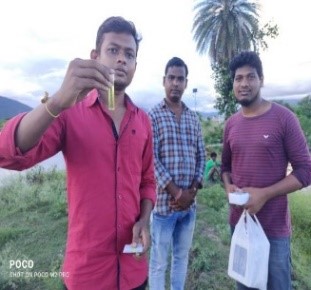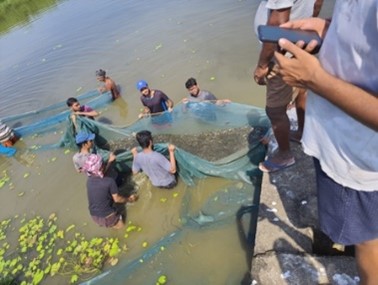Collaborating with Local Communities to Maintain Aquatic Ecosystems
Centurion University’s School of Fisheries actively collaborates with local communities to sustain and improve community freshwater ponds. Their initiatives include activities like weed clearance, continuous monitoring of pond conditions, consultations with fish farmers, and disease surveillance, all aimed at ensuring these ponds remain conducive for fish. These efforts not only enhance the well-being of the local community but also promote the long-term sustainability of these crucial water resources.
The School’s commitment to sustaining community ponds is further evident through fish breeding programs. These programs provide training and demonstrations to local fish farmers, supporting seed production and introducing ornamental fish farming as an additional economic opportunity. This empowers the local communities economically and ecologically.
The Rasur Lake Ranching Program addresses the seasonality of the lake by introducing new fish stock during dry months. By releasing Indian Major Carps and Exotic Major Carps, this program ensures a stable food supply for fisherfolk, with active community participation playing a vital role in its success. The School of Fisheries along with its students conducted a program of Rasur Lake Ranching on 09 September 2019 along with stakeholders and fishfolks located at Village R. Sitapur, Paralakhemundi, Gajapati Dist.
Similarly, the fingerlings of Indian Major Carps and Exotic Carps were introduced to the Ram Sagar Reservoir and Sita Sagar Reservoir on 15 October 2019 in collaboration with the State Fisheries Department for enhancing fish production located at Paralakhemundi, Gajapati Dist. along with stakeholders and fishermen.
Centurion University’s School of Fisheries is deeply dedicated to preserving aquatic ecosystems and supporting local fishing communities through activities like biodiversity restoration, water quality monitoring, and pollution awareness. Their efforts ensure sustainable fish access and contribute to the long-term environmental well-being of these essential water resources.

